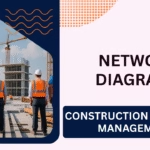Introduction
The Public Works Department (PWD) is a key government agency responsible for the planning, construction, and maintenance of public infrastructure across India. Civil engineers working on government projects must understand specific PWD considerations involved in construction planning and management. These include technical, financial, legal, environmental, and administrative aspects that govern project execution.
This guide helps JKSSB aspirants grasp these critical PWD elements for exams and practical knowledge.
What is PWD and Its Role in Construction?
PWD is responsible for public infrastructure such as roads, bridges, government buildings, water supply systems, drainage, and sanitation works. PWD projects follow strict guidelines to ensure quality, transparency, and accountability.
Role of PWD includes:
- Project Planning & Approval: feasibility studies, DPRs, sanctions
- Construction Execution: tenders, contracts, site supervision, quality control
- Maintenance & Repairs: asset longevity
- Regulatory Compliance: government standards, environment, safety
Why Are PWD Considerations Important?
Non-compliance can cause delays, cost overruns, poor quality, or legal issues. PWD considerations ensure:
- Standardized procedures and quality
- Transparency in budgeting and contracts
- Timely project completion
- Environmental and safety compliance
- Public trust in government infrastructure
Detailed PWD Considerations
1. Project Approval & Sanctioning
- Preliminary Feasibility Report
- Detailed Project Report (DPR) with designs, estimates
- Technical Sanction by competent authority
- Financial Sanction ensuring budget availability
2. Cost Estimation and Budgeting
- Preliminary and detailed estimates
- Rate analysis based on market rates
- Contingency allowance (3-5%)
- Price escalation for long projects
3. Tendering and Contract Management
- Open or limited tenders
- Bid evaluation: technical & financial
- Contract documents with scope, timelines, penalties
- Performance security (bank guarantees)
- Variation orders for scope changes
4. Technical Standards & Quality Control
- Compliance with IRC, IS codes, CPWD manuals
- Material testing in labs
- Skilled workmanship
- Regular inspection & audits
- Defect liability period for repairs
5. Time Management and Scheduling
- Work Breakdown Structure (WBS)
- CPM and PERT techniques
- Milestone tracking
- Delay analysis & Extension of Time (EOT) procedures
6. Resource Planning and Logistics
- Skilled manpower allocation
- Machinery & equipment scheduling
- Material procurement & inventory control
- Transportation logistics
7. Environmental & Safety Compliance
- Environmental Impact Assessment (EIA)
- Waste and pollution control
- Safety equipment and training
- Compliance with environmental and labor laws
8. Documentation and Reporting
- Daily progress and measurement books
- Payment and correspondence records
- Audits and inspections
Common Challenges in PWD Projects
- Bureaucratic delays
- Budget overruns
- Contractor issues
- Quality compromise
- Environmental clearance delays
- Coordination gaps
Important PWD Documents
| Document | Purpose |
|---|---|
| CPWD Works Manual | Project execution guidelines |
| PWD Schedule of Rates | Material and labor cost benchmarks |
| IRC Codes | Road and highway standards |
| IS Codes | Material and structural design |
| PWD Contract & Tender Rules | Procurement and contract guidelines |
| Environmental Impact Assessment | Environmental clearance reports |
Exam Tips for JKSSB Aspirants
- Learn PWD project cycle steps
- Understand estimate types and budgeting
- Study tendering and contract types
- Review technical standards (IRC, IS codes)
- Practice project scheduling and resource management questions
- Know environmental and safety regulations
- Solve previous JKSSB construction management questions
Conclusion
PWD considerations are vital for effective government construction projects. JKSSB aspirants should master PWD processes, standards, and management to excel in exams and civil engineering practice.



